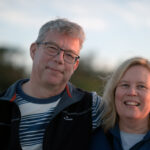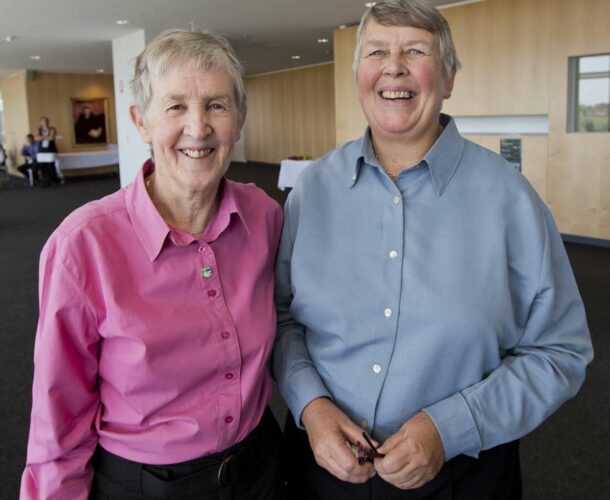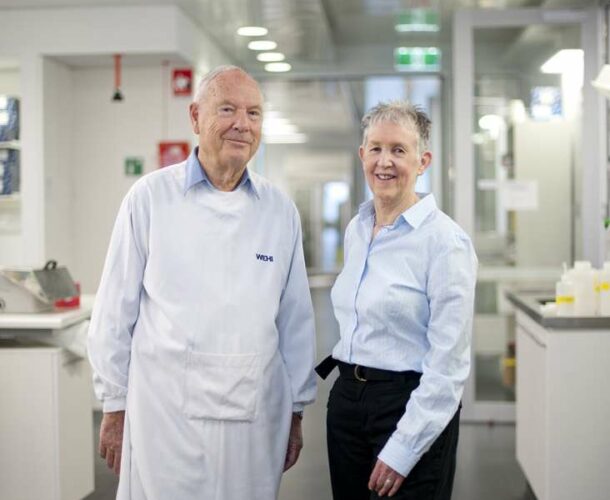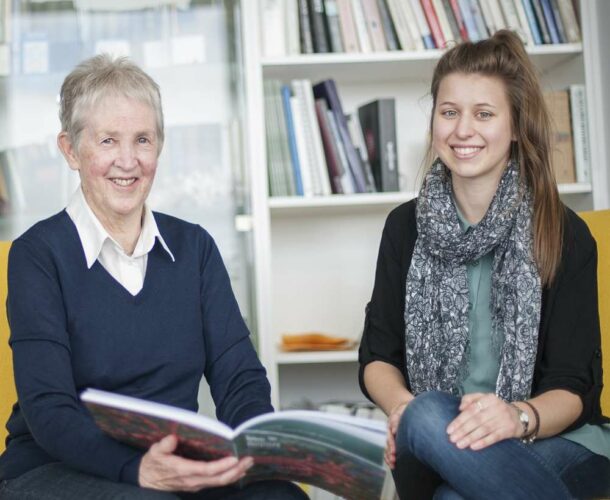Barracking for science
Living in sports-mad Melbourne, sometimes the public worship of sporting champions becomes a bit too much for Pauline Speedy and Jenny Tatchell.
Where’s the adulation, they wonder, for home-town heroes like those working in medical research, in which Melbourne has long distinguished itself as an international powerhouse?
Folk on the street can recite decades worth of statistics and reminiscences around their football teams, “but ask Joe Blow about the Walter and Eliza Hall Institute, or the Burnet Institute, or the Baker IDI Institute, and they look at you dumbfounded,” says Speedy. Instead of supporting a football team, she and partner Tatchell decided to barrack for science.
For them it is no mere spectator sport. They have been donating consistently to medical research for about 15 years, and in retirement the former special education teacher (Speedy) and nurse (Tatchell) study the form of the various laboratories and follow their ups and downs and emerging talent with all the passionate investment of your average football tragic.
Seizing opportunities to learn
“It’s inspiring to go to places like the institute,” says Speedy. “You meet these young people making wonderful discoveries using their knowledge, skills and enthusiasm.” They attend the annual meetings and public lectures and seize on opportunities to learn the latest from laboratory leaders. Former directors Professor Gus Nossal and Professor Suzanne Cory are their ‘pin up’ champions. Tatchell has recently signed on to join a consumer/researcher ‘buddy’ system providing feedback to funding grant applicants.
“We’re in the happy situation where we can afford to help,” says Speedy. Without children of their own, they’ve willed the bulk of their estates to a portfolio of research institutions, telling their wider families that this will benefit generations to come.
An understanding of treating disease
Tatchell comes from a long line of doctors and nurses, and in her own nursing career spent years at the old Fairfield infectious diseases hospital in the era where medical scientists were frantically working to understand and treat HIV/AIDS, which claimed several close friends. But her grasp of the critical importance of treating disease dates back to her childhood.
“Mum died of ovarian cancer when I was 11, so I was going to find the cure for cancer. When I wasn’t able to do that myself, I decided to support people who might.”
In the early 1960s Speedy’s mother had cancer. She survived thanks to the efforts of a skilled surgeon.
Her sister was diagnosed with cancer in both breasts 20 years apart, and Speedy was herself diagnosed in 2008, underwent surgery, radiotherapy and chemotherapy, and has now passed the five-year milestone of being cancer free.
She became one of more than 20 million cancer patients around the world who have been treated with CSFs – colony stimulating factors – drugs that boost immune systems ravaged by chemotherapy. She dubbed them “the magic injections – they kept me healthy and out of hospital while the chemo killed my cancer”.
Support for the next generation of scientists
During her treatment Speedy had the opportunity to personally tell the man who discovered CSFs, the institute’s Professor Don Metcalf, how grateful she was. He led research efforts around CSFs at the institute for 50 years, maintaining involvement right up until his death in December 2014.
Last year Speedy directed her $20,000 annual donation into encouraging the next generation of scientists, supporting a program giving undergraduate science students a chance to spend the summer holidays working alongside experienced researchers in a laboratory team – a kind of scientific internship.
Perhaps it might inspire the next Metcalf. Speedy says she can’t imagine a more worthwhile investment.
Pauline Speedy’s legacy
Our dear friend and supporter, Pauline Speedy, passed away suddenly on 8 July 2016.
She is remembered with the annual Pauline Speedy Innovation Grant and the Pauline Speedy PhD Scholarship in breast cancer research.











